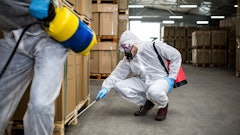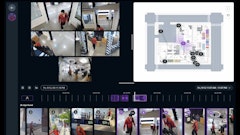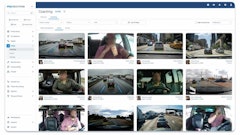
With skyrocketing costs – from groceries to housing – it makes sense that most workers are concerned with fair pay. But despite the reality of out-of-control prices, there’s one issue that carries even more importance for frontline workers: safety.
Safety over salary: Data shows what frontline workers actually want
A recent survey from SafetyCulture found that frontline workers place a high priority on their job safety — even putting it ahead of a higher paycheck. If forced to find a new job, the majority of workers said they would prioritize safety over a better salary.
But would higher pay lure them to a higher-risk job? Not necessarily. Only 22% of workers said they’d choose a job that offered a higher salary, but also had a higher level of risk, proving that the dollars don’t compensate for the danger. Younger workers were still cautious, but a little more likely to take the risk than Baby Boomers. Meanwhile, 28% of Gen Z workers, 29% of Millennials, and 23% of Gen X workers said they’d take the riskier job with higher pay.
But even so, most workers aren’t jumping at bigger salaries if it means a bigger threat to their personal safety. The data shows they want the same level of risk (or even lower risk) than their current jobs — even if it means sticking with the same pay.
Safety as a selling point
Leaders in the supply chain space who want to keep their frontline workers and attract new talent need to emphasize safety and a culture of ongoing improvement. Here are three ways to help employees feel respected, supported, and most importantly, protected.
1. Empower workers with a voice
Frontline workers are the ones doing their jobs day in and day out, and they understand their safety better than anyone. According to the survey data, nearly half of workers believe the best ideas for operational improvements come from their own ranks, but not all feel heard and understood by upper management.
One of the best ways to show workers that you’re prioritizing their safety is to give them regular opportunities to voice concerns and share feedback. While this may sound time-consuming and difficult to scale, gaining full visibility into the business while also giving employees an easy way to voice concerns is invaluable – and can be accomplished seamlessly with a mobile-first solution.
2. Offer competitive hazard pay
Safety takes the cake, but pay is still in the spotlight. It’s a crucial consideration for any worker, particularly with the rising costs of almost everything.
Providing hazard pay is a way to recognize the inherent risks and physical demands that come with a dangerous job. It garnered a lot of attention among frontline workers during the pandemic (although, many companies ended hazard pay well before the actual risk was over or minimized). With the right amount and the right timing, this additional compensation can make frontline workers feel even more supported and appreciated for the difficult and often risky work they do.
However, hazard pay is a complement, not a substitute. It’s a way to recognize the risks of frontline workers on top of providing adequate safety precautions, training, equipment, and resources.
3. Continue to iterate and improve
An organization may have a solid grasp on safety measures right now, but technology (and risks of all sorts) are ever-evolving. New team members, new technology, new processes, new equipment, and new products are shifts that could turn existing safety procedures on their heads.
For that reason, a commitment to safety is an ongoing process and not a one-time initiative. This speaks to the value of having open communication and candid feedback with workers and continuously making strategic improvements to training, equipment, protocols, and communication plans.
Our survey data found that most workers believe at least a few injuries in their workplace or industry could have been prevented with better training and work instructions. One of the greatest responsibilities that companies have is staying curious, treating safety as a learning process instead of a box to check.
Safety is the bare minimum, not a perk
Frontline jobs are demanding — oftentimes physically, mentally, and emotionally. And if workers are going to put it all on the line to benefit an organization, the data shows that they need to know you quite literally have their back. And while pay is critically important, remember that a paycheck demonstrates to employees that you value them as a worker — prioritizing their safety shows that you value them as a person.




















